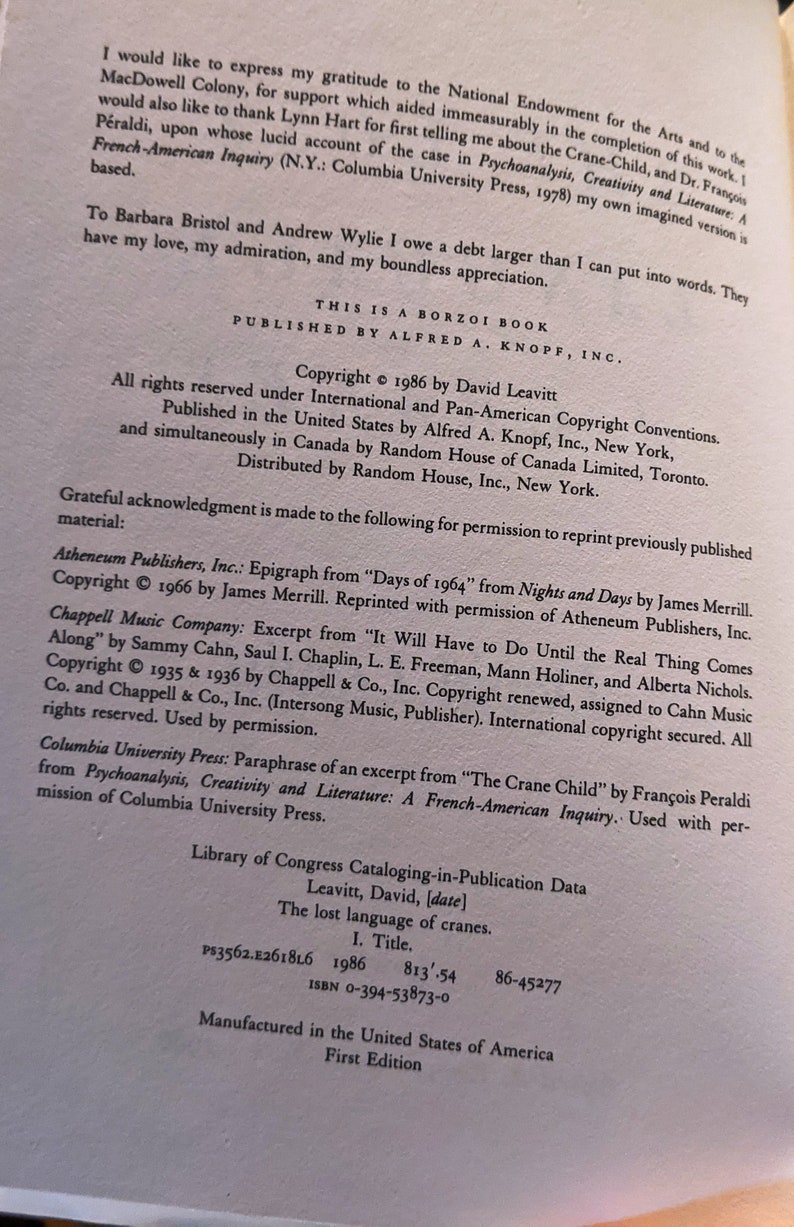
Other thoughts, of work or play, rarely enter their minds Pacing icy streets in the morning’s early hours searching for a sex partner, his principal male characters are habitually in tears.

Leavitt seems to be telling us that gay men do what they must do with a sense of manifest destiny but that they do so with little joy. If he has made any effort toward upgrading his self-esteem in the work place or elsewhere, we are not told about it.Īs for poor Owen, he has fled Rose, seeking shelter in Philip’s small West Side apartment, awash in booze and self-pity.

We never see him at the office, have no idea if he is good at his editing, takes any gratification from it, or how he gets along with his boss and the switchboard operator. Moreover, there is a screen across the rest of it.

Nevertheless, she seems far from reconciled to the pattern of Philip’s life. Rose’s dismay at these intrigues erupts in anger, but then, taking an unexpected liking to the quest, a forgiving embrace for Philip. I take that to mean that those whom we love are decided by fate, and thus we are absolved of responsibility for the choice.Īt the conclusion of the book, Philip has begun a cautious relationship with a likelier partner, but the worsening family situation comes to crisis over a dinner party to which Owen invites a potential lover for Philip. In no time, the homosexual web widens, showing us first Philip’s haunted, hopeless pursuit of the arrogant Eliot, the elegant aloofness of Eliot’s adoptive, homosexual parents and then, surprisingly, the secret homosexual longings of Owen, Philip’s father, and the misery of his lonely fulfillment of them.Īs these disclosures are made to Rose, she is understandably distressed and reluctant to accept the change in family dynamics, which is now asked of her by both son and husband. He reveals himself as anxiously in love with a young man called Eliot. The problem presented by their apartment’s going co-op soon merges into a more threatening one, the “coming-out” of Philip. The story centers on a seemingly ordinary New York City family of three, Owen Benjamin, schoolmaster his wife, Rose, copy editor for a publisher, and their 25-year-old son, Philip, an editor. The accuracy with which it reflects the perceptions and attitudes, the aspirations and grievances of that influential community should make the book of interest and controversial, indicating as it does the growing viability of the gay alternative in our society. David Leavitt’s “The Lost Language of Cranes” is a first novel about the gay world which, ironically, is displayed as a very bleak one indeed.


 0 kommentar(er)
0 kommentar(er)
